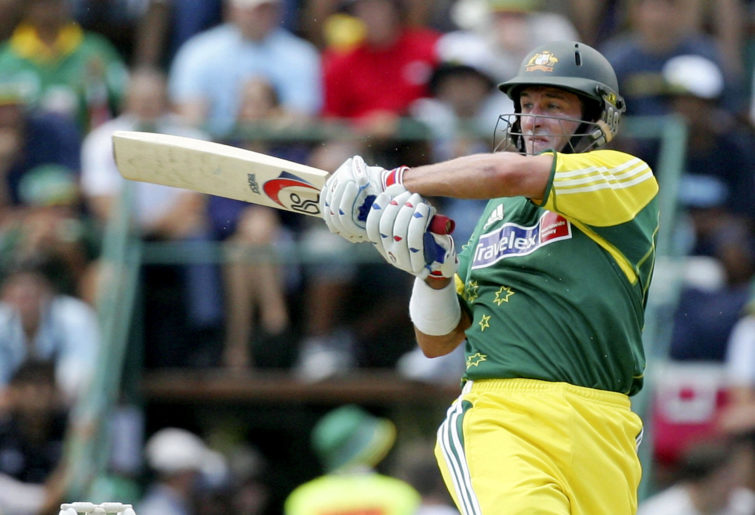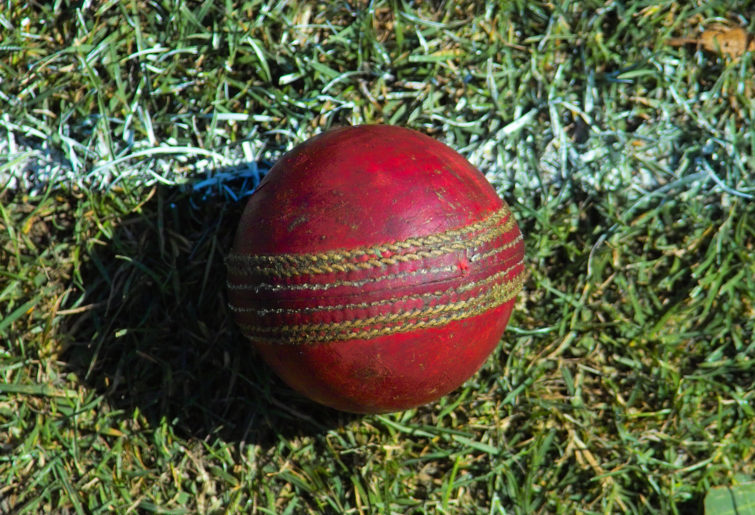Stoinis clubs stunning IPL ton, makes tough chase look a cinch with clutch final-over barrage
Marcus Stoinis produced his first IPL century and it was a beauty. He went 6, 4, 4, 4 to finish off the Lucknow Super…
Opinion
Coming into this one-off match, played at the Castle Avenue in Clontarf, Dublin on June 17, 2010, Australia had notched nine successive ODI series wins, which included the 2009 Champions Trophy.
On the other hand, Ireland had played just one ODI in the previous ten months. However, in the 2009 home season, they had fallen short by only three runs against England in a rain-affected game at Belfast.
Ireland of course had gained the reputation of being giant killers after their memorable 2007 World Cup campaign, during which they had beaten Pakistan and Bangladesh and tied with Zimbabwe. Their narrow defeat to England in 2009 had further underlined that they were not a team to be taken lightly, especially in their own conditions.
This was Ireland’s second ODI against Australia, the first being at Bridgetown in the Super Eight stage of the 2007 World Cup, where they were rolled over for just 91 en route a thumping nine-wicket defeat. Slightly overcast weather and an enthusiastic crowd greeted the teams in a match largely considered as a warm-up for the Australians before they faced England in a five-match ODI series.
Ricky Ponting won the toss and decided to bat on a sluggish pitch conducive to the Irish medium-pacers. The rustiness of the batsmen was evident as they failed to get on top of a disciplined bowling attack. Shane Watson departed in as early as the fifth over, edging one to wicketkeeper Gary Wilson off Boyd Rankin (2-45) with the score at 20.
Wicketkeeper Tim Paine and Ponting combined for a second-wicket stand of 66, but the run rate stayed below four an over. With the score at 86, Paul Stirling’s off spin got rid of Ponting as the star batsman found Andrew White at deep midwicket. In the very next over, Michael Clarke was out stumped for a duck off Alex Cusack (2-38).
Clarke’s dismissal was a close call but the doubt could not be clarified – there was no third umpire for this match. Australia were now 3-86, with a rebuilding act the need of the hour. Paine found support in Cameron White, and the pair steadily revived the innings with a fourth-wicket partnership of 62, before the latter fell to Stirling (2-34) for 42.
Australia battled to 4-162 as the final ten overs began, the ground now blazing in sunshine. In the 44th over, the O’Brien brothers combined to dislodge Paine – the batsman clipped a Kevin O’Brien delivery that went straight to Niall O’Brien at midwicket. The reliable Michael Hussey also fell in the same mode two overs later.

(Photo by Hamish Blair/Getty Images)
Nathan Hauritz struck a few meaty blows at the death as Australia collected 21 from the final three overs. He became the third consecutive batsman to fall to a ‘c. O’Brien, b. O’Brien’ dismissal. The final total was an uninspiring 9-231, with Paine top-scoring with a patient 81 off 122 balls, which included five fours and two sixes.
Ireland’s tidy bowling reflected in the scorecard as only one bowler went for more than 4.5 an over. Kevin O’Brien was the pick of the lot with 3-43 off his ten overs, while Rankin, Cusack and Stirling all scalped two wickets each.
There would have been genuine optimism among the locals as the chase began – the moderate target was certainly attainable. Soon, the Australian bowlers were at the receiving end of a breathtaking batting display from openers Stirling and captain William Porterfield.
Porterfield set the tone with three boundaries off Ryan Harris in the second over. Stirling greeted Doug Bollinger by smashing fours off his first two balls, before hitting two more off Clint McKay in the following over. After four overs, Ireland were cruising at 0-42 and a shock victory now seemed closer to reality.
Porterfield hit the first six of the innings in the tenth over, as he tonked McKay over square leg and into the crowd. The openers had made full use of the power play, and the score at the ten-over mark read an astonishing 0-76. The game was Ireland’s to lose. However, inexperience proved to be their undoing.
Harris provided the breakthrough by castling Stirling for 36 in the 11th over. After an opening stand of 80, all Ireland needed were a couple of cool heads to see them through to a historic win. If only it was so simple against the world’s best ODI team, not to mention the World Cup holders since 1999.
A buoyed Harris struck in his next over as well, as he trapped Wilson plumb in front. Just four balls later, Hauritz bowled Porterfield for 39 with his off spin. Ireland had now lost three wickets for just six runs, and Australia were well and truly clawing back into the contest.
Niall O’Brien and Cusack put the chase back on track with a fourth-wicket alliance of 51. At the end of 24 overs, the hosts required 95 runs more with seven wickets in hand. However, they had reckoned without James Hopes, whose right-arm medium pace was perfect for the pitch.
After a tight first two overs, Hopes had Cusack (30) LBW in his third to reduce Ireland to 4-137. In the next over, Hauritz further unsettled the Irish fans by accounting for the key wicket of Niall O’Brien, caught behind by Paine.
Nerves were quickly tightening as the last recognised batting pair of Kevin O’Brien and White got together. Ireland’s wings had been clipped, and the gulf between the teams’ experience was now showing. After having dealt with the faster bowlers with relative ease, the batsmen were under the pump against Hopes.

(Wiki Creative Commons, CC BY-SA 3.0)
Hopes had both White and O’Brien caught behind in successive overs to shatter the Irish dream. The score now read 7-150 with a full 19 overs remaining. It was too tall a task for the Irish tail, as Hopes surged towards his five-wicket haul by bowling Trent Johnston and having Peter Connell LBW in successive balls in his ninth over.
Having bowled unchanged since the 20th over, Hopes turned out to be Australia’s saviour with a career-best spell of 9-3-14-5. From 3-137, Ireland had crumbled to 9-156 after 35 overs. The last pair of John Mooney and Rankin kept things interesting with a stand of 36, but it was too little, too late.
The innings ended when Mooney, who scored a valiant 38, edged Shane Watson to Ponting at midwicket. Ireland were bowled out for 192, losing by 39 runs with eight overs unused. Australia were no doubt relieved, while Ireland were left to ponder what might have been. Hopes was aptly named the man of the match.
Australia had somehow squeezed out a victory after facing a very real prospect of going down to the Irish – a result that would have drawn parallels with their loss to Bangladesh at Cardiff in 2005. Hopes admitted that the visitors were rusty after a lengthy break from 50-over cricket, and that they had to dig deep to achieve the win.
Porterfield was understandably disappointed at having let go of such a big chance.
“We had them right on the back foot,” he said.
“It was ours to lose and we let it slip. It’s pretty disappointing from the position we were in, especially after the first ten to 12 overs. We took the game to them. We definitely put them under pressure.”
Later in the season, Ireland won their first home ODI against a full member when they beat Bangladesh by seven wickets at Belfast. In 2013, they twice came agonisingly close to beating Pakistan at home before going down 1-0 in the two-match series, tying the first ODI and losing the second.
They have played Australia three times in ODIs since 2010 – a no result at Belfast in 2012, a 23-run defeat in Belfast in 2015, and a nine-wicket defeat in Benoni in 2016-17.